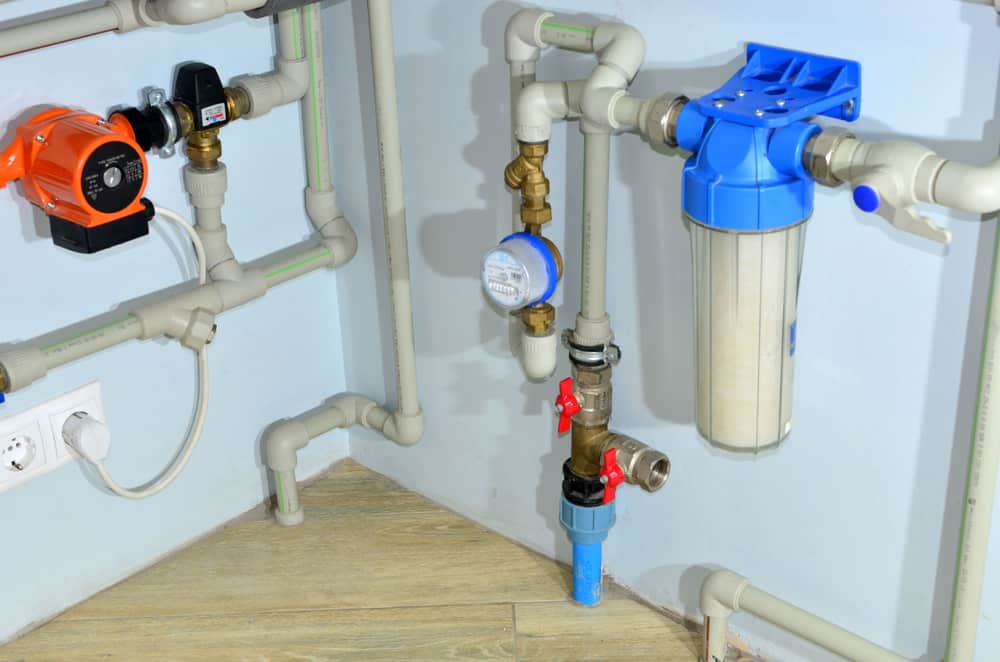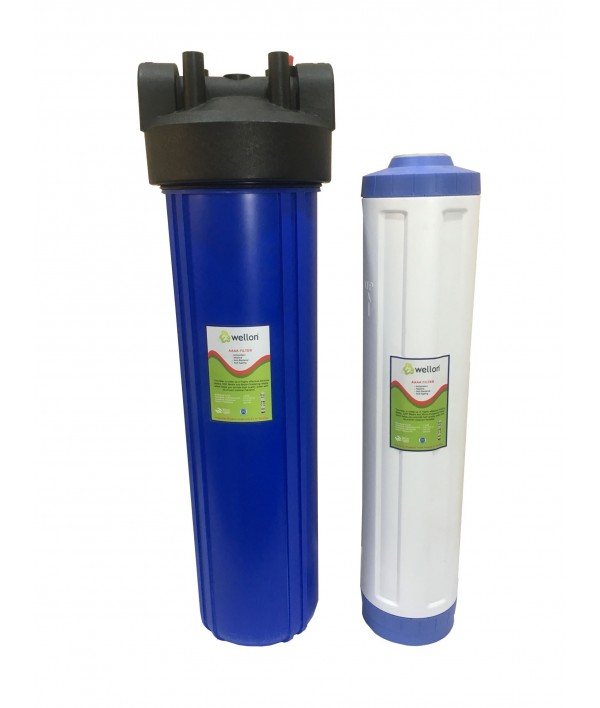What are the Benefits of Using a Whole House Water Filter?
What are the Benefits of Using a Whole House Water Filter?
Blog Article
What're your thoughts and feelings about Choosing Home Water Filters & Other Water Treatment Systems?

Whole residence water filters are the ideal alternative for people that have an interest in having a home that supplies tidy, drinkable water. Together with giving top quality drinking water throughout your house, a whole residence water filter also gives benefits such as getting rid of impurities that create finding in water that is made use of to wash recipes. Unfiltered water can also create problem such as rusting plumbing as well as devices, messing up apparel that is washed as well as stain sinks or showers. Although entire house water filters are usually made use of in domestic residences, they can also be an efficient alternative for houses or workplaces.
At first, it may appear that whole home water filters would certainly be extremely costly when contrasted to other filter choices, yet they are actually an extremely cost-efficient option for water filtering. The rate range of these water filters is big, beginning at 2 hundred dollars as well as setting you back as high as one thousand dollars. The cost of the filters depends on their dimension, material as well as lifetime. This might look like a very high rate, but when compared with other filter alternatives, it is in fact very budget-friendly due to the quantity of filtering system that it provides.
Whole home water filters detoxify water in the very same fashion that other filters, such as counter top or under sink filters, do. The difference is that it calls for just one filter, which is affixed to the main water source, rather than needing several water filters to be affixed to various tools. As with the other filters, whole house water filters cleanse tap water by forcing it with a number of various phases of purification. Among the stages is carbon purification. Carbon is an effective method of filtering water because it is porous and has the ability to remove little as well as big pollutants. Carbon is vital in eliminating unstable natural carbon substances, which sometimes can trigger severe damages to the liver, kidney or central nerve system. Carbon likewise eliminates harmful substances such as pesticides, industrial solvents and pesticides.
An additional crucial action of the purification procedure includes a process such as ionization or micron filtering. This step removes thousands of impurities located in faucet water, as well as transforms the water to fantastic tasting, healthy and balanced alcohol consumption water. As pointed out previously, the primary advantage of whole residence water filters are that they supply filtered water throughout your home with using only one filter.
An additional benefit of entire house water filters is the long lifetime that they use. Much of these filters last between fifty and one hundred thousand gallons of water. For several, the main negative aspect of entire home filters is the higher than ordinary rate. Although these filters are extremely inexpensive, they do need a large investment in advance. Whole house water filters can additionally need a significant quantity work to install.
How to Choose Home Water Filtration System
There is nothing more trivial than drinking tap water. We do it every day, unaware of how dangerous it could potentially be. More than 2.000 chemicals are found in tap water in the United States, with only 5% of them being safe. One way to ensure one’s health and safety is to install a water filter. But there are so many types of water filters out there! How can you choose the one that fits your budget, home, and lifestyle the best? Have no fear, help has arrived.
As well all know, it’s easy to go to the store and buy the first, the most appealing filter you see. However, there is a high chance it won’t properly filter out the exact chemicals that appear in your tap water and will leave you exposed to the diseases lurking inside. Do you actually want to play the game of chance and risk something as valuable as your health? High Water Standard will not let you take that risk. We can help you with water filter and softener installation. Order the high-quality filtration system and drink your water with a peace of mind.
Before actually buying a home drinking water filtration system, you should test the water quality and identify what types of water filters are suitable for your home first.
To do so, you need to take the following steps:
Test the quality of the water to find out what chemicals it contains (you can test it on your own, or request a water quality report from the city administration). Learn what home drinking water filtration systems will eliminate the precise chemicals from the water. Identify which filters fit your house and budget. Determine the water contamination sources around the house and get rid of them. Know Your Water Quality
To decide on which of the best home water filter systems you should buy, first and foremost, you need to learn what kind of chemicals you are dealing with. So how do you test water quality? It’s not like you can pour a glass of tap water and test it in your home laboratory (unless you have it). There are actually several easier ways you can do this.
First, if you live in a city or town, there is a high chance you are using communal water. If that’s the case, you can go to the EPA website, which houses all reports on water quality in the US, to gather more information. Just find your state, enter your town and water system name – and, voila! You’ve got the report.
If you are using a private well, it’s going to be a bit trickier. The easiest way – though not too precise – is to look at the contents, smell and taste it. Pour some water in a glass and see if it looks or smells weird. The water should be crystal clear. If it is cloudy or has visible distinct particles – there is a good chance something is wrong. Another sign is a weird smell or taste, which are consequences of high levels of iron, sulfur or chloramine; one of the most common water quality problems in the US.
Lastly, you can grab yourself a water quality test kit online or in the store. These kits can identify a number of different chemicals from iron to chlorine, as well as determine the hardness of the water and the level of contamination. They come with a set of strips, that will change color when submerged into the water if there is any kind of chemical present. Yet, how did these chemicals and impurities get into the water and how do they affect this water type? Also, how can you filter water at home?
Why is Your Water Polluted?
Not every home drinking water filtration system will work perfectly for your house due to the unique impurities of the water in your area. Those impurities are determined by the water source and distribution medium.
Water travels miles from its origins, through an infinite number of pipes and water tanks before it reaches your home. It contains pollutants and bacteria from lakes and rivers, borewells and seawater. They are, of course, filtered along the way, yet various chemicals are used in the process – that’s why you get that chlorine taste. Identifying the chemicals in your water is an easy way for you to find the best water filtration system for a home.
Identify Your Water Type
Another advantage of getting chemical reports or test kits is learning your specific water type. Basically, it tells you if your water is hard or soft. Hard water is the least suited for drinking, as it contains high levels of specific substances such as lead, heavy metals, and arsenic. This water will make you ill in no time.
Yet, the best water filter systems for the home or, preferable purifiers, can turn the hardest, most dangerous water into a perfectly safe, drinkable liquid. Soft water is generally safer, but it doesn’t hurt to run it through a water filter, to ensure its safety.
Now that you know all the dangers of contaminated and hard water, one question still remains: how do you filter water at home? Here’s where the water filters and purifiers come in.
https://www.highwaterstandard.com/blog/types-of-water-filters

As a devoted person who reads on What are the Benefits of Using a Whole House Water, I was thinking sharing that topic was a good thing. Do you know about somebody who is excited by What are the Benefits of Using a Whole House Water? Please feel free to share it. Thanks a lot for your time. Don't hesitate to check up our site back soon.
About This
Report this page